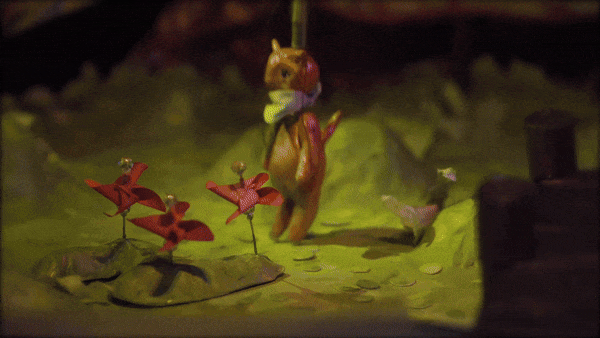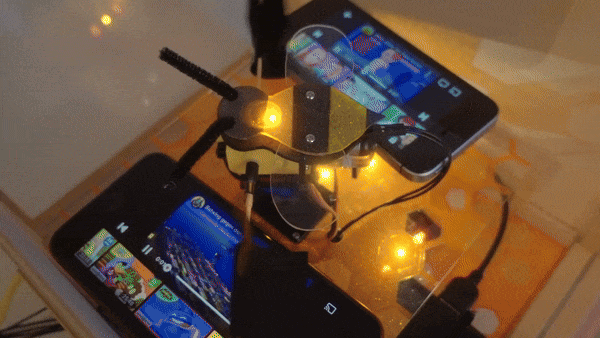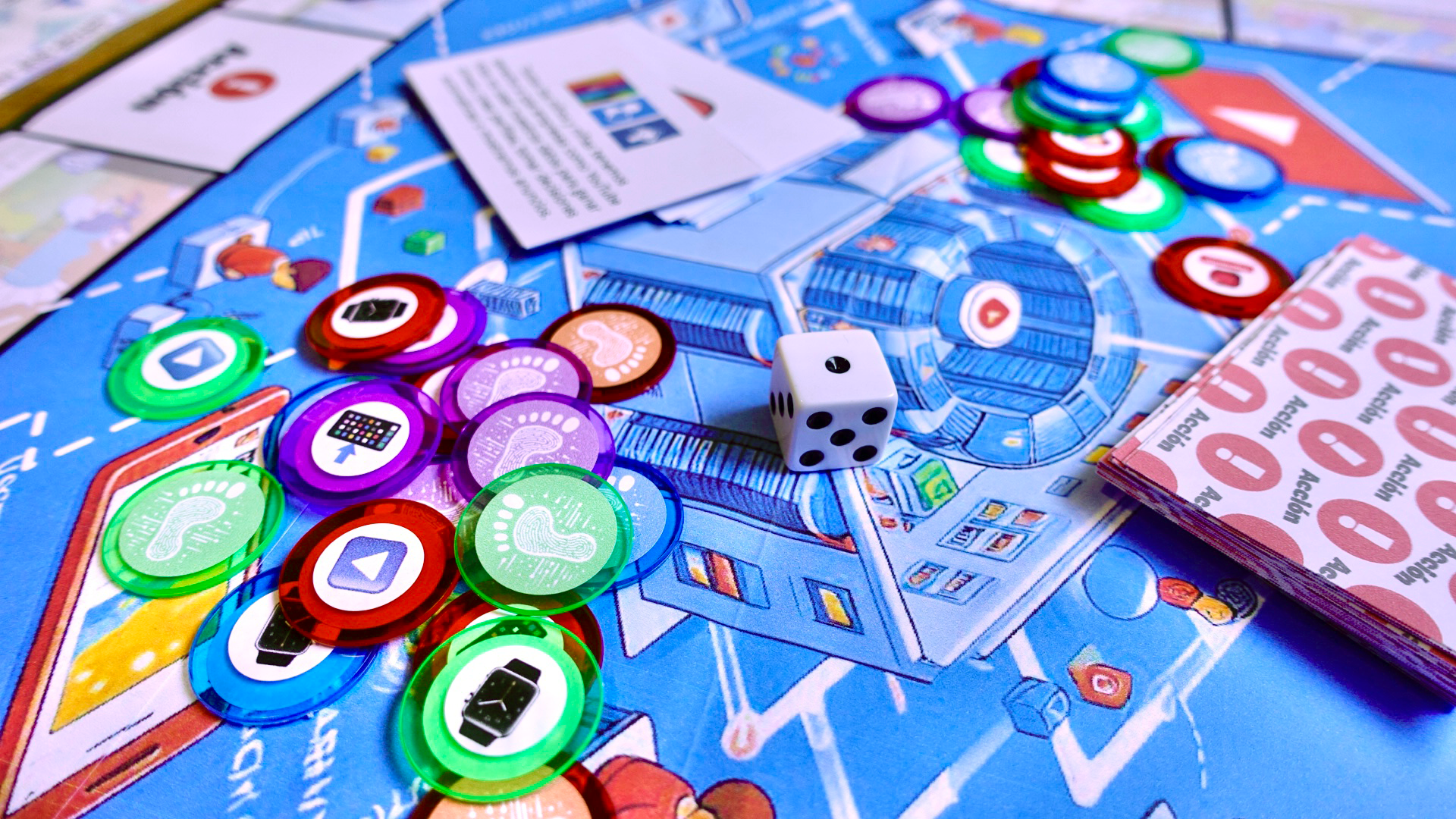My digital rights
This workshop introduces children to their digital rights, helping them understand what their digital footprint is and how their data is collected, processed, and used. Through engaging, hands-on activities, participants interact with artworks, play custom-designed board games, and engage in exercises that teach essential concepts for safe internet use. The emphasis is on learning through play, fostering both reflection and enjoyment.
Structured across multiple sessions, the workshop offers flexibility, allowing activities to be conducted either consecutively or independently, based on the group's needs.
The workshop is part of the artistic research project DADA-TATA and was first held in October 2024 in Lima, Peru, with children aged 6 to 9.
Sessions
My rights
Introducing students to the Convention on the Rights of the Child, with a focus on its 2021 update for the digital world. Using an activity sheet, students explore how they navigate and balance their lives online and offline.
My biometric data
Through the micro puppet show Track-Track: Let’s follow the cat!, students are introduced to the concept of biometric data, learning what it is and understanding its importance.
Zoo city
In this session, students explore a city map to identify which animals live there, track their footprints, and uncover their activities. Through this exercise, children practice tracking and information-gathering skills while learning about the three types of data: data voluntarily provided by users, digital footprints, and inferred data.
Beehive
Through this interactive installation and a complementary activity sheet, students explore the processes behind the big data industry, understanding how user data is collected, processed, and used for commercial purposes.
Guess the User?
Inspired by the classic game Guess Who?, this board game challenges players to deduce a user’s digital profile based on limited data categories, such as devices, online habits, and preferred applications. Through gameplay, it fosters dialogue and critical reflection on digital footprints and data collection practices. +Read more
YouTrack Kids
Inspired by Monopoly, this board game helps children understand how apps like YouTube continuously collect their data. It also shows them the actions they can take to protect their information. Additionally, through informative cards, players gain insight into how the collection of personal data by apps affects their digital rights. +Read more
My privacy spheres
This activity sheet is designed for children to identify their privacy spheres and reflect on the information they share. The main goal of the activity is to foster a dialogue between parents, children, and caregivers, encouraging the exchange of ideas and helping them define the boundaries of their privacy.
Art supplies vending machine
This interactive experience revolves around a “machine” that dispenses art supplies, simulating the recommendation systems used by apps. Based on the materials suggested by the machine, participants engage in a series of activities that explore how these artificial intelligence systems influence their creative and exploratory processes. The artwork encourages reflection on the impact of recommendation systems on the right to freedom of thought and how they can subtly shape users’ choices and creative processes (project under development).
Let’s go to the beach!
In this session, we discuss appropriate design based on the different stages of children’s development, and how certain apps are designed for children aged 9 or 13 and older. Additionally, using the metaphor of the beach, we explore the dangers that exist online and the strategies we can use to protect ourselves.
DADA-TATA project is developed by Nomi Sasaki as Ph.D. candidate at the University of Art Linz in collaboration with the Zurich University of the Arts.











